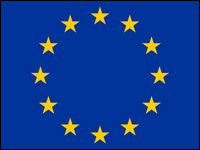
After months of vehement arguments from anti-patent lobbyists, the European Union could finally approve a controversial draft software patent law on Monday. The decision would signify a possible end to a long battle over the use of such patents in the EU.
The Computer Implemented Inventions Directive, or CIID, was unanimously rejected by the European Parliament last month with a request for additional review and a possible redraft. The European Commission — the executive branch of the EU’s governing body — refused the request. An official from Luxembourg, which holds the EU presidency, told reporters today that he expects the European Commission to approve the draft law on Monday in its current form.
“The directive on computer-assisted inventions … is an A-point at Monday’s meeting,” said the Luxembourg representative, which in EU jargon refers to an issue that is to be approved without a debate. “We have not seen any change of heart on the part of any EU member.”
Patent Analysis
Opponents, including the Foundation for a Free Information Infrastructure, have aggressively lobbied against the directive, claiming it would lead to widespread patenting of software in Europe, which the foundation opposes. Supporters of the patent rules, including Microsoft, deny that claim.
Michael Q. Lee, attorney with Sterne, Kessler, Goldstein & Fox in Washington, D.C., told LinuxInsider that this week’s developments are “good news” for those who believe that patents are useful.
“The European Commission is seeing that patents actually encourage innovation,” the pro-patent Lee said. “Patents encourage idea sharing because the inventors have to fully disclose their invention to obtain a patent. Otherwise the inventors would have the incentive to keep everything secret.”
Opponents Stand Firm
Three of the most famous European authors of open-source software have made it clear that they oppose software patents. Linux author Linus Torvalds, MySQL author Michael Windenius and PHP author Rasmus Lerdorf called the proposed European directive “deceptive, dangerous and democratically illegitimate.”
A joint statement by the open-source leaders stressed that software authors are well protected by copyright law while software patents establish “the law of the strong,” which creates more injustice than justice.
“The draft directive in question is deceptive because it leads laymen, and even those legal professionals who are not familiar with the intricacies of patent law, to falsely believe that it would exclude software from patentability,” Torvalds, Windenius and Lerdorf agreed in their statement.
“However, it is actually a compilation of the entirety of the excuses with which the patent system has, for many years, been circumventing article 52 of the European Patent Convention in order to grant patents on software ideas.”
Article 52 of the European Patent Convention drafted in 1973 names “programs for computers” among inventions that should not be regarded as patentable by the European courts.
Due to the complexity of the situation, the battle is expected to continue for several months. However, despite the opposition, analysts said it appears that the EU will soon have a software patent law on the books, which will give Microsoft, Nokia and other large companies doing business in European countries a long-awaited victory.





















































>"Patents encourage idea sharing because the inventors have to fully disclose their invention to obtain a patent. Otherwise the inventors would have the incentive to keep everything secret."
????? Let me get this straight. You patent an ‘idea’ and that’s *sharing* it? Share = anyone can use it, not everyone has to buy it from you. The two sentences are mutually exclusive. And who the heck cares if they keep something secret? It only hurts them in the long run if someone else comes up with a better solution two days later. All patents ‘actually’ do is prevent anyone else from coming up with that alternate solution for implimenting the same idea. Give me a break!